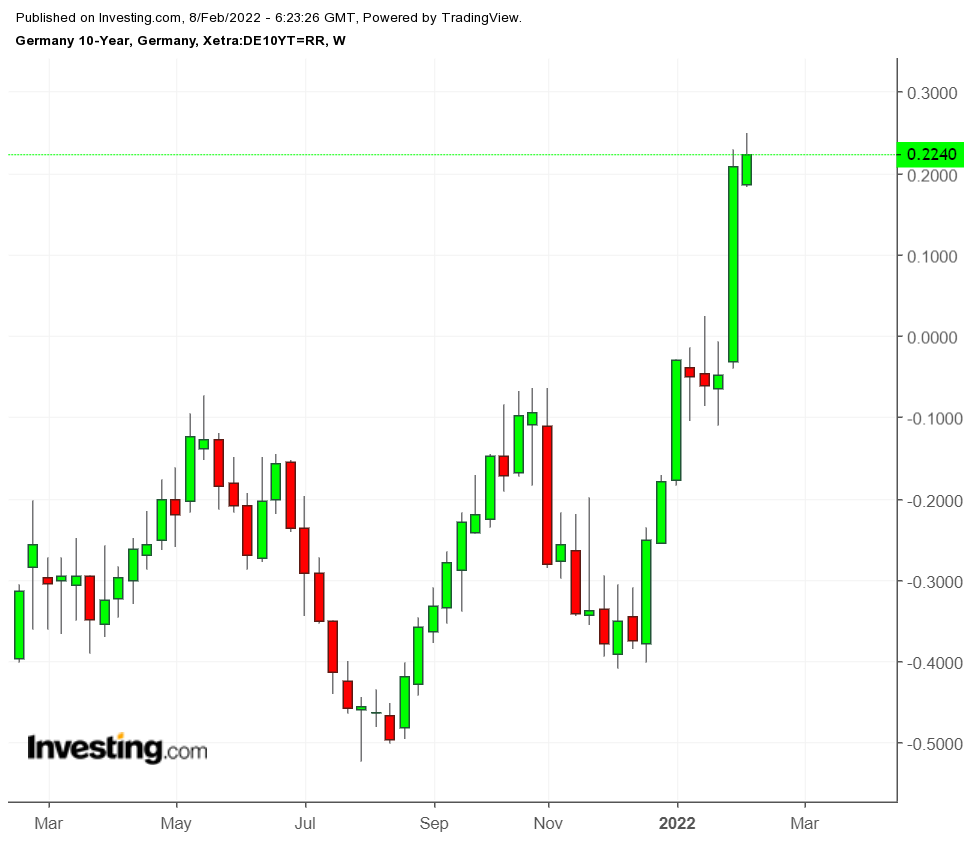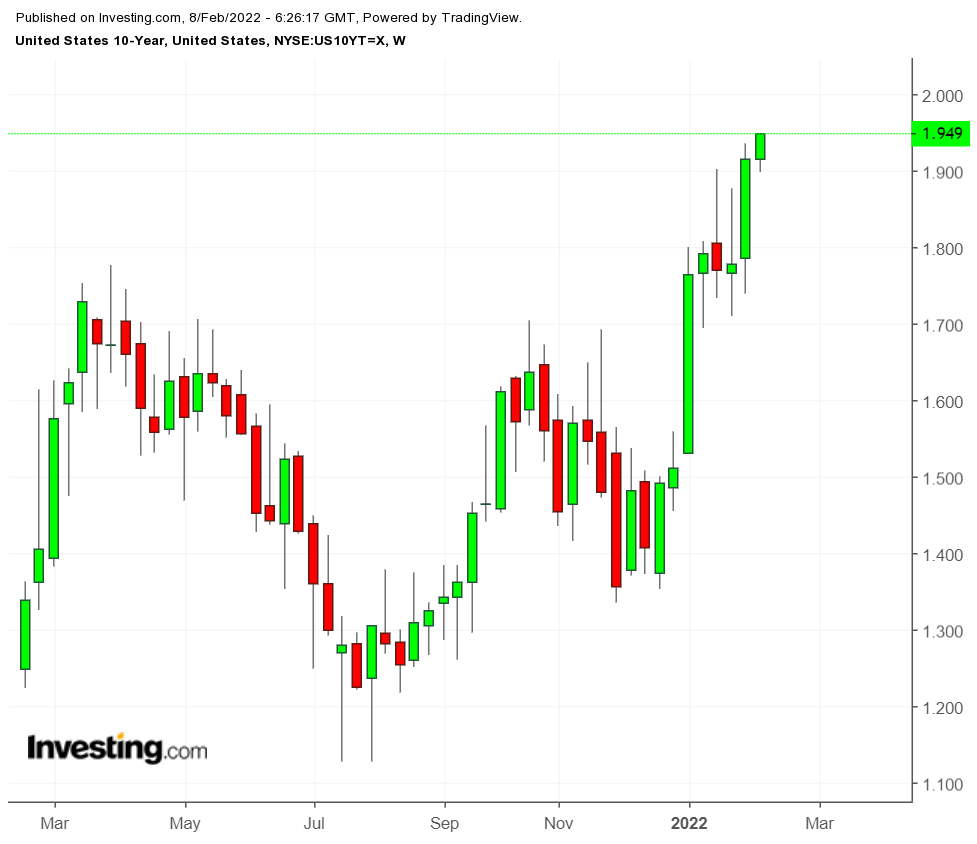European Central Bank President Christine Lagarde roiled government bond markets big time when she said last week that eurozone policymakers can no longer exclude a rate hike this year. This “hawkish pivot,” after Lagarde maintained in December she didn’t expect the ECB to raise rates in 2022, had an immediate impact.
Greek and Italian bond yields skyrocketed as the prospect of monetary tightening, including a likely end to ECB bond purchases, hit government bonds, especially in the European Union’s peripheral countries.
Yield on the 10-year Greek bond surged 25 basis points Monday afternoon to hit above 2.3%, while the Italian 10-year yield added 10 bps to hit near 1.9%.

Even the German 10-year bond yield continued its climb—into positive territory, to 0.23%—and France's 10-year bond yield hit its highest level since January 2019 at 0.67%.
Klaas Knot, the hawkish and outspoken head of the Dutch central bank, removed any lingering doubts about ECB intentions that might have remained from Lagarde’s hedging when he said over the weekend that the first rate hike would probably come in the fourth quarter, followed by a second one in early 2023. Knot, one of the 25 policymakers on the ECB’s governing council, forecast eurozone inflation remaining at 4% for most of the year.
Lagarde tried to calm investors Monday with reassurances that any change in ECB policy would be gradual. Her remarks dampened the surge in yields, but did not reverse it.
US Yields Soar On NFP Surprise, But Uptrend May Be Temporary
In the US, the strong jobs market report on Friday pushed yields on the 10-year Treasury note above 1.9%, close to the key threshold of 2%, with some analysts setting 1.95% as a breakthrough point to propel yields higher.

The report that the economy added a greater-than-expected 467,000 jobs in January—triple the forecasts of 150,000—signaled to investors that the Fed would have the freedom to raise rates as planned in March.
At the same time, the five-year break-even rate in Treasuries showed inflation at only a little below 3%, suggesting that the Fed would be able to contain rising prices without driving the economy into recession. The 30-year Treasury Inflation-Protected Securities broke through to a positive yield last week, indicating that negative real interest rates will eventually come to an end.
Yield on the 2-year Treasury note, which reflects the impact of near-term rate increases, shot up above 1.3% on Friday after settling below 1.2% Thursday.
Auction sales this week could provide further clues as to the direction of yields and the shape of the yield curve. The Treasury will auction $50 billion of 3-year notes on Tuesday, $37 billion of 10-year notes on Wednesday, and $23 billion in 30-year bonds on Thursday.
Contrarian economists quizzed by Barron’s, however, are predicting another downturn in yields, arguing that recent strong economic data is due to excessive inventory-building, especially at big-box outlets, and this makes the economy vulnerable. They also cite high government debt as a drag on economic recovery, which will keep a lid on long-term rates.
In any case, government bond markets have entered a new phase of volatility as central banks adjust their policy outlook and COVID-19 continues to have an erratic impact. Investors don’t have the luxury of policymakers to hem and haw, so the markets are prone to exaggerated swings.
